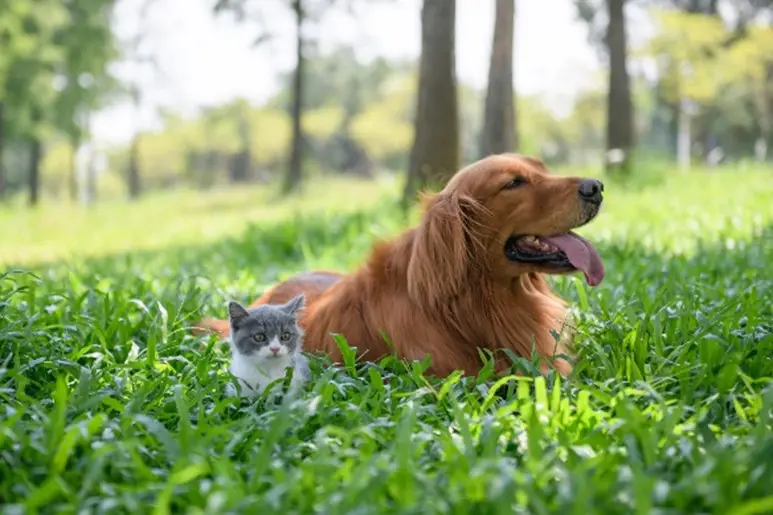Spring Hazards
28th March, 2023

Spring is a lovely time of year. While we may appreciate a season associated with beautiful flowers, sweet treats and seeing family, springtime can have hidden dangers for our pets. Spring means light nights and warmer weather but for pet owners, it comes with its own set of challenges too – and we’re not just talking about Easter Eggs.
To help make spring as fun as possible for you and your pets, we’ve put together a hub of essential information for owners.
Seasonal Allergies
Dogs and in rarer instances cats, can develop seasonal allergies to pollens. These often manifest as part of a clinical problem called atopic dermatitis but can occur in isolation. Pets with a seasonal allergy often itch and scratch, and can damage the skin, leading to sores and infections
Hot Cross Buns
Hot cross buns are an Easter staple, but did you know the raisins in them can be deadly to dogs? Grapes and all their dried forms can cause kidney failure in dogs
Pesky Parasites
While new life is all around us during Spring, sadly this bloom also extends to some of our more unwelcome species. Fleas, ticks, and worms all start to grow in number around Easter as the weather warms up. This increases the chances of your pet encountering them.
Wasp and bee stings
Our pets can have a range of reactions to bee and wasps’ stings. At their least dangerous, stings are merely a painful inconvenience. At their worst extreme immune reactions can cause serious swellings – if this is around the head and neck, constriction of the airways and restriction of breathing can be a major concern. If you see bees and wasps inside the home, safely remove them from any areas your pets may have access to.
Flowers
Did you know the UK produces 90% of the world’s daffodils? They can be found in the wild, in gardens and even bouquets. Along with Tulips, Hyacinths & Crocus both cats and dogs can be poisoned by eating these spring plants. All parts can be toxic, including the leaves however bulbs are often the most toxic part of the plant.
Spring Cleaning
With spring comes spring cleaning! While keeping a clean house is important for pet care, cleaning products can be dangerous for pets. If you think your pet has ingested even a small amount of any cleaning product, we recommend contacting you vet as soon as possible.
Adders
These are the UK’s only native poisonous snakes and are found in a wide range of habitats. Adders hibernate over winter and emerge in spring; this is the time when the likelihood of being bitten is at its highest. These snakes often bask in the sun and inquisitive dogs that stumble upon them are most often bitten around the face, muzzle, and front paws.
Lungworm
Wet spring months usually mean you’ll see a fair few slugs and snails around and they all have the potential to carry the dangerous lungworm parasite. When your pet rummages through the undergrowth, drinks from puddles, eats grass, or generally sniffs outside, they can end up eating or licking slugs, snails, or their slime trails, increasing the risk of becoming infected by lungworm.
Helpful Pages
Recent Posts
Pet Insurance Quote
- 98% claims paid *
- Claims paid directly to vets
- 24/7 vet video consultations
- Interest free monthly payments




